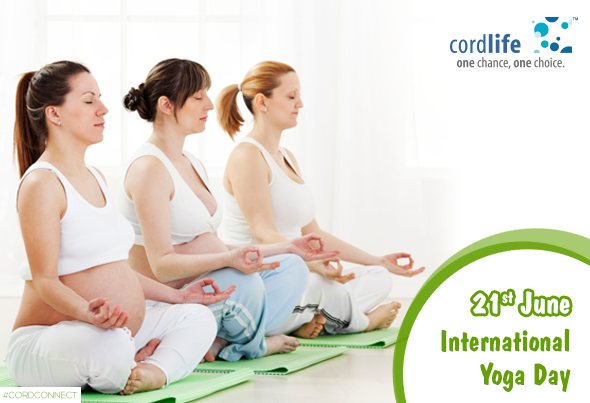Table of Contents
Yoga has tremendous implications on pregnancy and must be practiced for overall good health and positivity by every pregnant woman.
For centuries now, yoga and its allied asanas (the exercises or poses practiced therein) have been a source of inspiration to those seeking the meaning of their lives in the context of the universe. It is an ancient discipline honed to perfection by yogis who sought a deeper connection to the creator. At its core, yoga comprises eight principal components that encompass everything from improving one’s mental acuity to being able to influence one’s inner divine power for spiritual solace.
However, most people continue to equate yoga with the physical exercises and poses that it teaches. The asanas are a part of the overall science, while meditation (dhyana) is another. It is said to have tremendous physical, emotional and spiritual effects on regular practitioners, and these effects are being researched and quantified.
The very first effect of yoga on the body is to clear the mind and help it focus better. That, in itself, is the key to alleviating stress and anxiety. Regular practice of Hatha yoga, for instance, has a marked effect on one’s stress levels. Studies also indicate that regular yoga practitioners experience greater levels of physical fitness, better mood and even alleviate the symptoms of chronic mental and physical ailments such as depression and heart problems.
In contemporary times, as interest in yoga grows around the world and more and more practitioners look for deeper health and emotional benefits for themselves, it is time to take stock of whether this ancient practice has any effects on the health and mental focus of pregnant women. Yoga during pregnancy and its effects are examined in some detail below.
Yoga and Pregnancy: The Effects on Health and Mind
An insightful research conducted by a team of psychologists and social behaviourists from the University of California indicates that practicing yoga during pregnancy had positive effects on the stress and mood levels of 51 pregnant test subjects. Women who practiced yoga were found to have lower incidence of postpartum depression as well.
Practicing yoga during pregnancy is bound to have several positive effects because of the holistic nature of the practice – it works on the physical, mental and emotional state at the same time, thus inducing better mind and health control. This is a must for pregnant women, whose bodies undergo several changes during and after pregnancy, and which are also accompanied by several hormonal changes that have an effect on the woman’s mental make-up.
Broadly, the positive effects of yoga during pregnancy are seen by:
- Pregnant women practicising yoga are healthier in mind and spirit.
- The various yoga asanas improve flexibility and make the joints more limber. This helps them during labour as the body is more amenable to flexing and is less likely to suffer ligament injuries.
- Yoga improves blood circulation and discharge of toxins and waste material from the body. This helps both the mother and the baby.
- Fluid retention is reduced with yoga, leading to less swollen ankles and less pains in the body.
- It improves the posture and keeps the spinal column supple, which reduces pressure on the back at a later stage.
- Yoga practiced after birth helps to strengthen the abdominal muscles and provides support to the pelvic floor.
Prenatal Yoga and the Unborn Child
Yoga may have a direct impact on foetal health as well: it is believed that a tired, anxious mother may pass on the stress she feels to her unborn child. Research has long established that the overall good health of a pregnant woman may help the foetus develop into a healthy baby that takes birth at full term.
In the context of yoga, practitioners believe that it helps prepare the mother for the important function of childbirth by relaxing the spine, keeping the ligaments supple and most importantly, aligning the mother’s body so as to help the body move into the optimal birthing position when the time for childbirth comes. The mother will also have better control over her body during the difficult childbirth process, and will be more attuned to the baby’s movements and the needs of her own body.
More importantly, the chanting of incantations and ‘Om’ during yoga meditation may lend credence to the belief that a calm mother produces a calm infant. The chanting of ‘Om’ certainly reaches the foetus, which can hear the mother from Week 15 onward. The calming energy perpetuated by the repeated vocalisation of the word ‘Om’ is said to reach the unborn baby – this is the foundation of a later parental practice of helping the child calm himself by hearing the sound of his mother’s voice.
On International Day of Yoga, it is time to emphasise the practice of yoga by every pregnant woman for a worry-free, healthy pregnancy.
